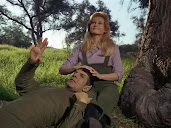Repost from 2005 with edits.
***
"There may have been more than three Wise Men!"
In terms of things to get disillusioned by, history facts have never been high on my list. There is a teaching approach in which instructors "surprise" their students with "what you think you know!" versus "what is really true!" enlightenment.
When the instructor is part of that process (I learned something so interesting when I was researching...), I don't mind.
But when the approach is a form of "debunking," it simply makes me tired.
So-called "debunking" frankly seems rather streamlined. The better type of instructor isn't going to say, "Everything you thought you knew is false!" because, well, actually, it might not be. (I've become quite fond of Great Courses lately because the instructors are summarizing others' research as well as their own, and they often try to be objective about what people have believed on a topic over the years.)
Another problem with the "debunking" approach is an issue that I encountered in books by an author I usually enjoy--the author commented in passing, "He wasn't most people's idea of an Asian man."
She then proceeded to describe the character in accordance with several Asian characters I've encountered in manga and on Viki.
Likewise, in my master's program, instructors would say things like, "Well, this is most people's image of..." as in, "This is most people's image of the West."
I can never figure out who
these people are. I always thought the West was a big, scary desert that the Mormons irrigated (part of it, anyway). I never assumed that prostitutes had hearts of gold or that mining wasn't incredibly dangerous or that people didn't get disillusioned and heartachy and downright lonely. Along the same lines, I never assumed that the Puritans were one monolithic group of believers or that New Englanders were devoid of racism in the 19th century. But I am given that information as if it will surprise me.
I like to learn about stuff, but in order to learn I don't feel it is first necessary to believe (1) there is a monolithic version of history out there that my current instructors will replace with ANOTHER monolithic version; (2) that I'm making all kinds of erroneous assumptions about stuff all the time about everything.
Both points assume that education's purpose is not to expand but to override.
Take the initial quote. I grew up with the classic Christmas story.About the time I hit teenagehood, I encountered, "There could have been more than three Wise Men!" statement with a kind of wink, wink, nudge, nudge implication:
We have insight! Aren't people doofusi for not knowing what we know?
My reaction was,
Sure, yeah, whatever, neat. Maybe growing up in the home that I did, I got used to hearing history discussed from multiple angles. As it is, the idea that there is more to a story, that a story and reality may not match up completely never surprised me. Not because I think people are big, fat liars. Just...
Why would I get upset? History is confusing and complicated with lots of stuff happening at the same time; people's memories are bad enough with what happened last week, let alone what happened 1000 years ago.
Subsequently, I've never faulted teachers for giving me the simplistic version of an event. Whenever I do any kind of research, I go to the kid's section first and read the "simple" version anyway. Got to have something to build on! I can understand people being a bit more upset that they got the "Caucasian-only" version, but since I'm Caucasian, again I've just figured: got to start somewhere!
But then, it never occurred to me that I should believe everything I was told. Even in high school. It never occurred to me that there wasn't more to come.
Behind the arguments against the simplistic version seems to be the idea that the simplistic version will KEEP another version from people. But in a country with libraries in nearly every town, not trying to expand one's knowledge is a choice, no matter who is speaking and no matter their ideology, especially since, sometimes, shutting down the "wrong" version results not in the "right" version but in...nothing.
Better Walt Disney's fairy tales than no fairy tales.



















































